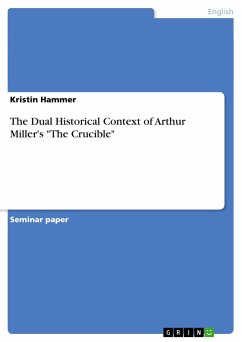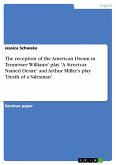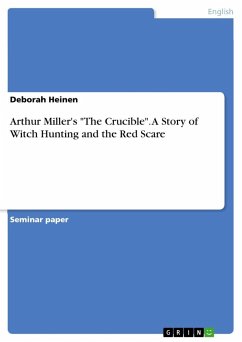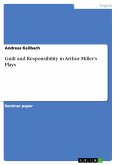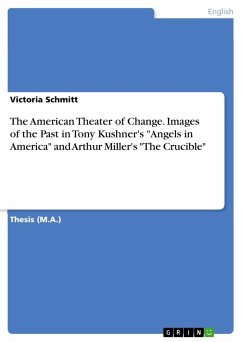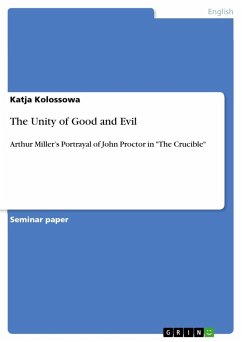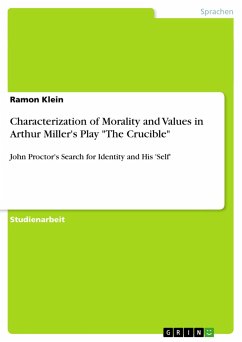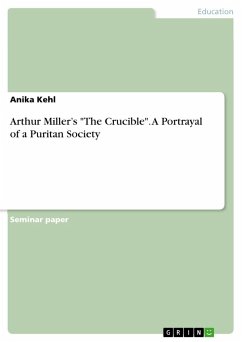Seminar paper from the year 2000 in the subject American Studies - Literature, grade: 1,7 (A-), University of Münster (Anglistics/ American Studies), course: Advanced Seminar Modern American Drama, language: English, abstract: As Arthur Miller states in his autobiography,1 The Crucible has become his most frequently produced play. This great success of a conventional drama can certainly not be explained without regard to its political message. When the play was first performed in 1953, its audiences were quick to recognize the connections between the witch craze in 17th century Massachusetts and the American anti-communist hysteria of their own time. Like any literary text, The Crucible reflects the conditions under which it was produced, and Miller himself says that he could not have written it at any other time.2 Since in this case parallels between the events in both times are extremely striking, it seems necessary for the understanding and interpretation of the play to explain its dual historical context. At the same time, it would be wrong to interpret Miller's drama against this background only. Or, as Reitz puts it: "The Crucible ist kein Schlüsseldrama, das auf die vordergründige Aktualität von Wiedererkennungseffekten setzt und zu diesem Zweck Anhänger und Gegner McCarthys als Puritaner (...) kostümiert".3 Miklos Trocsanyi argues similarly, pointing out that Miller was glad, when in the contemporary criticism (...) less and less mention was made of and parallel drawn between the witchcraft hysteria and McCarthyism. It meant that the deeper message was more and more appreciated.4Finding out about this "deeper message" is what the analysis of the dual historical context aims at. Therefore this research paper will, after explaining the historical circumstances of both the Salem witch hunt and the American anticommunism under McCarthy, focus on parallel phenomena underlying the events in both times. This comparison, which will be made from a psychological point of view, is intended to reveal why Miller's play "is presently being approached more and more frequently as a cultural and historical study rather than a political allegory".5

